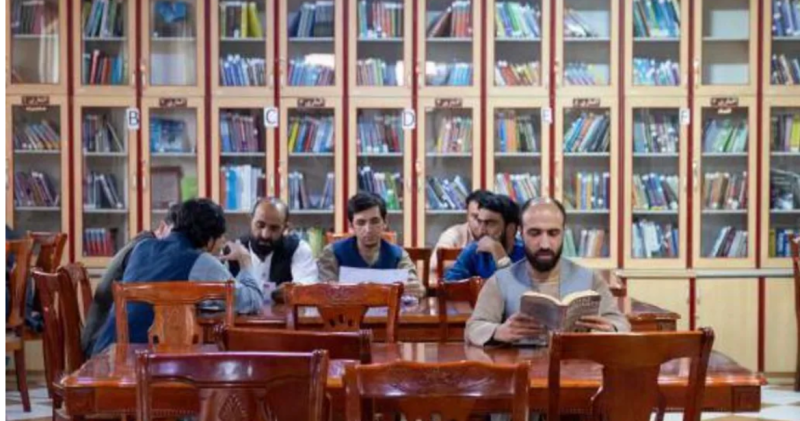The Taliban have imposed a new ban on Afghan universities, removing books written by women from the teaching system. The restriction also blocks the teaching of human rights and topics on sexual harassment.
University officials confirmed that the Ministry of Higher Education issued new guidelines this week. These guidelines order faculty to stop using materials authored by women. Several professors in Kabul said that students are now limited to books written only by men.
The decision marks another step in the Taliban’s strict control over education in Afghanistan. Since returning to power in 2021, the group has already banned girls and women from secondary schools and universities. Now, the exclusion of women’s work from higher education signals even tighter restrictions.
Human rights groups have condemned the move. They say the ban silences women’s voices and denies students access to diverse perspectives. Activists argue that removing women’s contributions from the academic system will harm Afghanistan’s educational progress and global reputation.
The Taliban have also restricted subjects such as gender studies, democracy, and social freedoms in the past. The latest measure further reduces academic freedom by cutting off discussions about human rights and sexual harassment. These subjects were previously included in university courses under the former Afghan government.
Professors and students, speaking anonymously due to fear of punishment, said the ban has created frustration in classrooms. Some worry that international recognition of Afghan universities will decline. Others fear the restrictions may push more young people to leave the country in search of education abroad.
The focus keyword Taliban ban books highlights a growing pattern of censorship. In addition to textbooks, libraries are under pressure to remove any literature written by female authors. According to rights observers, this trend could erase decades of progress made by Afghan women in academia.
International organizations, including the United Nations, have repeatedly urged the Taliban to reverse their policies against women. Diplomats stress that recognition of the Taliban government will remain difficult as long as these restrictions continue. However, Taliban officials defend their rules, claiming they are in line with Islamic and cultural values.
The Taliban ban books decision adds to the growing isolation of Afghan women. From education to employment, women face shrinking spaces in public life. Critics say that without urgent action, an entire generation of Afghan women risks being excluded from knowledge and opportunity.
To explore how art is becoming a form of protest, check out our story on : Artists pushing back against cultural complicity







